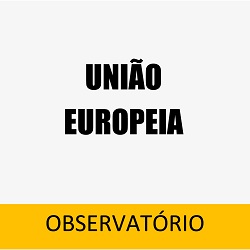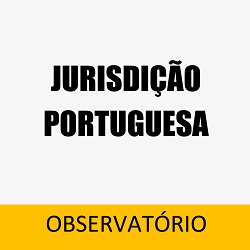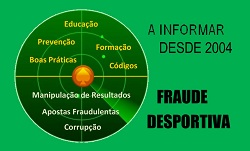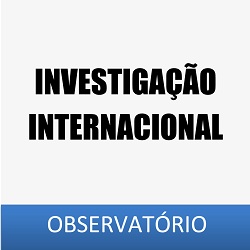Commission eyes EU regulation of online gambling
Policymakers and operators alike are broadly in favour of introducing EU-wide legislation to govern the online gambling market. But common rules should not prevent member states from regulating online gambling as tightly as they want, participants in a European Economic and Social Committee conference heard yesterday (6 September).
The European Commission is currently considering whether to regulate online gambling in the EU following the closure on 31 July of a consultation with stakeholders on the issue.
‘Appetite for EU action’
“There’s an appetite for action at EU level and it’s up to the College of Commissioners to decide what to put in its communication, which will come out in 2012,” Pamela Brumter-Coret, acting director of the European Commission’s Directorate-General for the Internal Market and Services (DG MARKT), told a hearing organised yesterday at the European Economic and Social Committee (EESC).
While gambling activities have traditionally been strictly regulated at national level to protect consumers from addiction, fraud, money laundering and match fixing, the exclusion of gambling activities from the EU’s Services Directive has triggered numerous complaints from the gambling industry regarding access to national markets.
Regulation of online gambling in Europe currently varies widely, ranging from perfectly liberal markets in some EU member states to outright bans in others, like Sweden.
The absence of EU legislation has given rise to a number of European Court of Justice (ECJ) rulings on the issue and several Commission infringement procedures against member states to verify whether national measures limiting the cross-border supply of online gambling services are compatible with Article 49 of the EU Treaty, which guarantees the free movement of services.
In June 2010, the ECJ ruled that EU countries can ban online gambling if their aim is to combat fraud.
But Germany is under pressure from Brussels to open up its gambling market, which is controlled by the country’s 16 states. A new law to be adopted in January would see online gambling banned, except for betting on horse racing.
Betting companies from other EU countries complained that the proposed new rules would severely hamper their activities or shut them out of the market.
Following criticism from Britain, Malta and the ECJ in recent rulings, the European Commission told Germany in July that it may have to relax its draft gambling law to give online gaming firms more scope to operate.
Towards minimum EU-wide standards
German liberal MEP Jürgen Creutzmann (Alliance of Liberals and Democrats for Europe), who is in charge of drawing up the European Parliament’s response to the Green Paper, wants the Commission to table a directive establishing EU-wide minimum standards, leaving national governments to go further – and even ban online gambling outright – should they wish to do so.
“Member states should be able to decide how to regulate online gambling themselves,” Creutzmann told the hearing. But he urged national regulators to inform one another when they revoke a licence or detect fraud.
Other lawmakers were quick to agree with the German MEP. “I want an EU-wide framework that offers a minimum – not low – level of protection for consumers. But member states should be able to go further if they want,” said Steffano Mallia, who is in charge of formulating the EESC’s response to the consultation.
Mallia wants the Commission to draw up a “white list” of licensed operators and urged it to engage in an EU-wide fight against illegal ones.
Among the ideas put forward by the Commission in its Green Paper was the establishment of an EU Secure Gambling Mark.
Although Parliament rapporteur Creutzmann supports that proposal in principle, he warned that it would only represent minimum standards at EU level. “National quality marks would work better in countries that have gone further,” he said.
Representatives of the sports world, meanwhile, were keen to play down the risk posed by online betting to the integrity of sports competition.
“If our matches were to lose credibility as a result of corruption or match-fixing, then the value of the product would decline for betting operators too, so we have a mutual interest [in protecting their integrity],” said Mathieu Moreuil of the English Premier League football championship.
In many EU countries match-fixing is yet to be properly criminalised, which prevents the police from getting more involved in its detection.
“Early-warning systems run by betting operators are a step in the right direction, but they’re not obliged to pass that information on to us when we have their own concerns,” Moreuil complained.
He said sports organisations must work in tandem with betting companies to find solutions that are acceptable to all parties. “Some sporting organisations want binding agreements with betting operators. Others simply refuse to allow betting on their events at all,” he said, citing the London Marathon as an example.
Business open to regulation…
The gambling industry itself would not appear to be against EU legislation, but there are concerns about its effectiveness unless companies themselves lead from the front.
“We welcome strong regulation and would like to see it across Europe. But it will be hard to find regulators that are competent enough to regulate the online gambling market,” warned Malcolm Bruce of Betfair, the world’s largest online gambling firm.
“Companies must take the lead, because they are on top of technological developments. Regulation is always behind technology,” he said.
Bruce said he would like to see the EU put together a continent-wide database of problem gamblers to help companies to keep such people off their websites.
But he warned against putting the burden on companies to root out problems like fraud and match-fixing. “We can’t resort to freezing betting too often because we have an obligation to our customers to pay them their winnings promptly – not after long investigations,” the Betfair man said.
…but not at any price
Other industry representatives warned against duplicating requirements from one country to another as this would only serve to increase the financial burden faced by business.
“We need common standards and should use guidelines published by CEN (the European Committee for Standardisation,” said Sigrid Ligné, secretary-general of the European Gaming and Betting Association (EGBA), which represents leading online operators like Bwin, Party Gaming, Unibet and BetClic.
In France it costs a firm €8.7m to receive a licence. “We can’t duplicate this 27 times,” she said.
The European Parliament and the European Economic and Social Committee will adopt their formal responses to the Commission’s Green Paper next month.
The EU executive will examine those and other responses to the consultation before deciding whether to table draft legislation to regulate the online gambling market in 2012.
Notícia: euractiv
Desde 2004







 Visite a nossa página no facebook … aqui
Visite a nossa página no facebook … aqui
Leave A Response
- You must be logged in to post a comment.





































